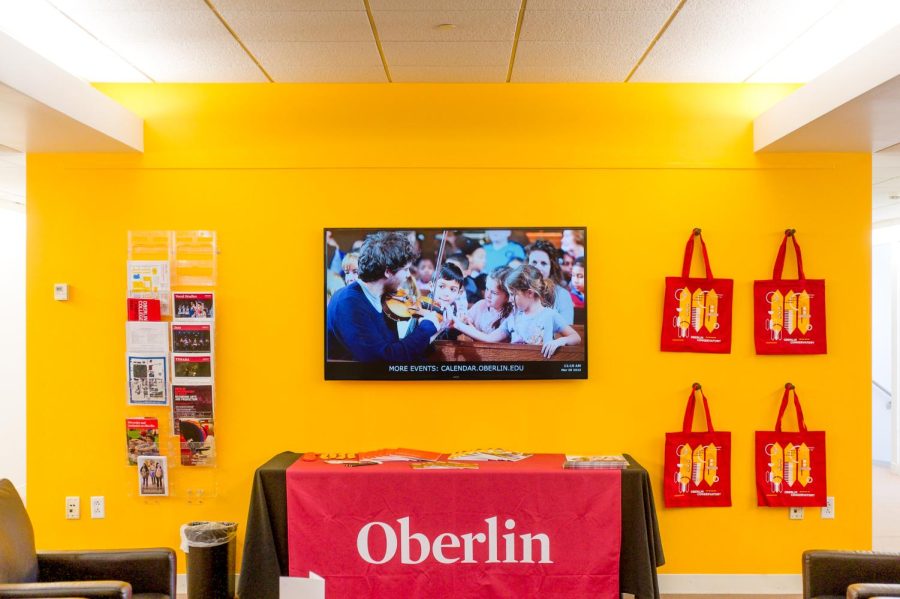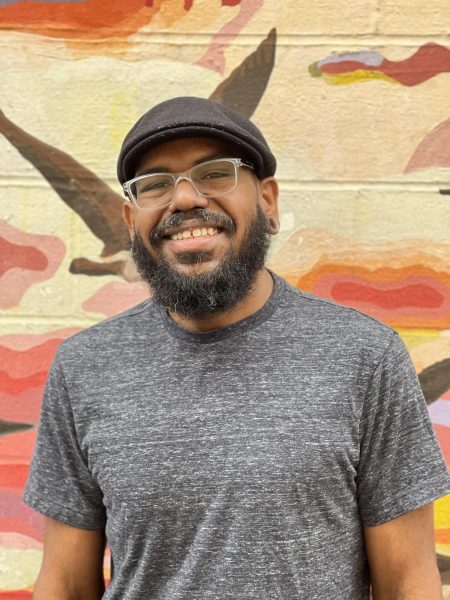Conservatory Admissions Shifts Back to In-Person Auditions in New Format
Live auditions returned this January.
This past January, the Conservatory hosted in-person auditions for the first time in three years. This year’s auditions took place from Jan. 25–28 in a four-day, on-campus event filled with student performances, information sessions, and campus tours. An additional date in February supplemented the January audition event specifically for international students, who often complete all of their auditions in one trip.
Since COVID-19 struck right after the 2020 audition season, the Conservatory’s auditions and interviews have been held virtually through Zoom or by recording. Though the January admissions event marked the return of in-person auditions, the pandemic still had a lasting effect. According to Acting Director of Conservatory Admissions Josh Teaster, around 40 percent of students offered auditions this year chose to submit recordings rather than travel to campus. Regardless, almost 500 students participated in the January audition event.
“Pre-pandemic, the percentage of students coming to campus was usually a little higher, like 65 to 70 percent, so weʼre not quite back, but it was a really strong showing of students wanting to come,” Teaster said.
The Conservatory Admissions Office made a few more changes to the audition process in addition to the switch from all-virtual auditions to an in-person option. Prior to the pandemic, in-person auditions took place over five weekends in February and March. Oberlin also used to provide regional auditions, where representatives would go to hear students audition in cities like New York and Los Angeles in an effort to be more accessible and convenient. Right before COVID-19 began, Admissions had already decided to shift the on-campus auditions to the last week of Winter Term because it wanted more time to evaluate applicants and make thoughtful decisions by mid-March. In addition, admissions found that regional auditions actually discouraged families from visiting campus, which is why Oberlin no longer offers them.
“The reason we stopped doing regional auditions is because, most of the time, although I do think we were being accessible to some students, we were talking to families that did have the opportunity or means to visit campus but chose not to because we gave them an easier outlet,” Teaster said.
At Oberlin, campus visits play a particularly important role in student yield. According to Teaster, students choosing not to come to campus for an audition because an alternative location existed posed a threat to enrollment.
“Students are much more likely to choose to enroll here if they have visited campus at some point in time,” Teaster said. “I don’t know if that’s true or as true of other institutions, but I know that itʼs really important here.”
To combat the loss of the regional auditions’ accessibility, the Conservatory implemented the Conservatory Audition Travel Fund three years ago. For the first time this January, the Conservatory fully funded 16 students to come to campus for their auditions. The Admissions Office hopes to continue the travel fund next year.
Because the campus visit is so important to Oberlin’s enrollment, admissions worried about welcoming students to audition during Winter Term rather than in February because of the potential lack of students and performances. Despite their concerns, many students had returned to campus in preparation for the start of the semester. Admissions filled the audition days to the brim with events, including a welcome from President Carmen Twillie Ambar and Dean of the Conservatory William Quillen as well as student performances showcasing each division within the Conservatory.
“The audition experience itself is really an opportunity to show students what the Oberlin community is like,” Teaster said. “Through holding events, through offering tours, through giving them the opportunity … to have informal conversation with other students [and] with faculty members, the idea is that you can come for a component of your application, something youʼre required to do, but what you get out of it is a view of Oberlin and the community and the program.”
Third-year Vocal Performance major Elizabeth Hanje sat on panels and gave tours during the audition days. She also debuted the role of Lyra in the Winter Term opera Alice Tierney, which coincided with the last two days of auditions.
“It was cool to meet students and parents and talk about the work I do at Oberlin, and then actually get to show them that work,” Hanje said.






